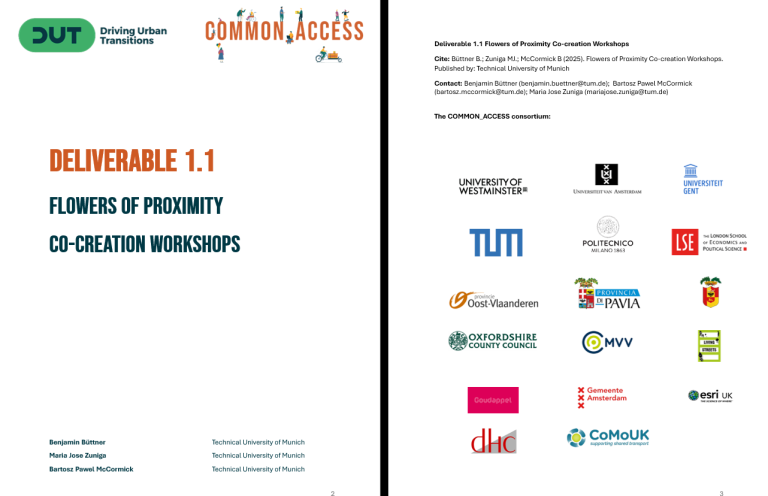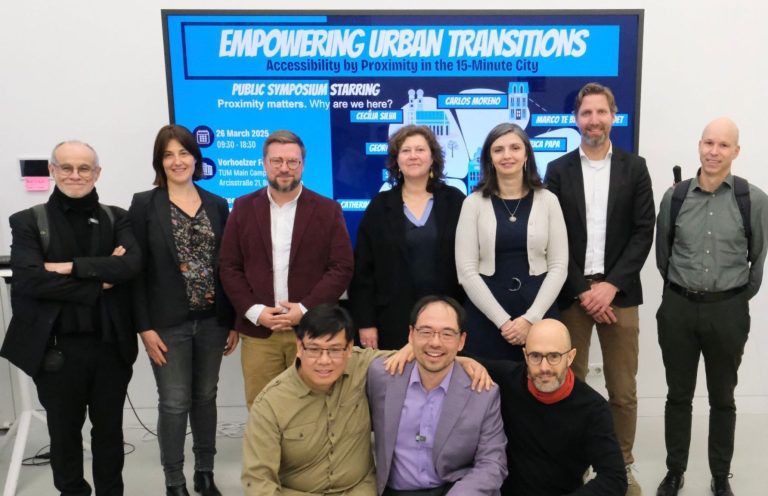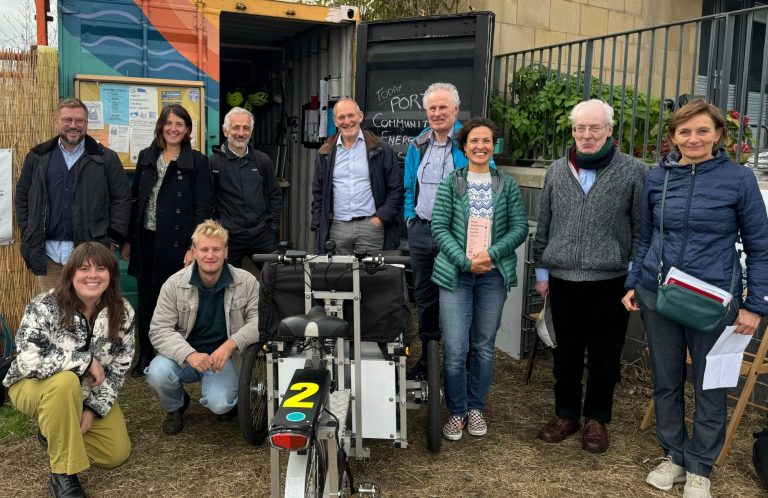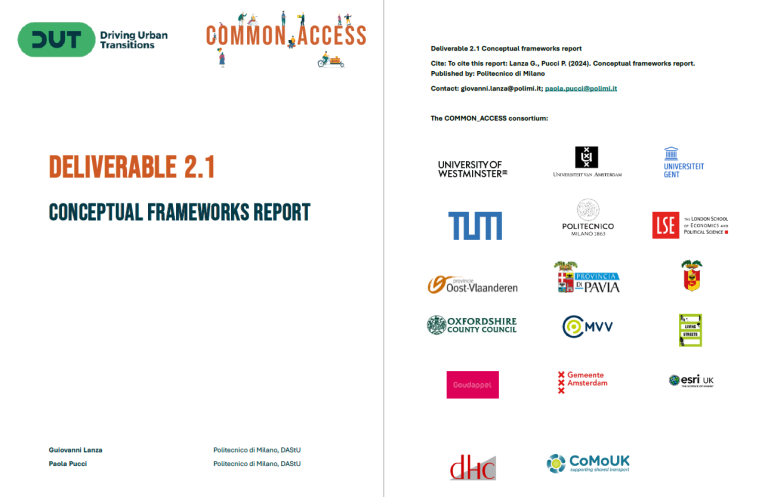COMMON_ACCESS News
Find out about recent updates from COMMON_ACCESS and all past updates below.
Recent:

Transport Reviews: Key Literature Review D5.1 on Accessibility and Policy published
22 May 2025
A literature review from the COMMON_ACCESS project, published in Transport Reviews, examines how communities in periurban, suburban and rural Europe respond to declining services and transport. It highlights how policy conditions shape grassroots accessibility efforts and introduces a framework for understanding accessibility as both a collective process and a political objective. Read the full article via Taylor and Francis Online using the link below.
Citation: Prins, A., L. Bertolini, and A. Nikolaeva. "Commoning accessibility in (European) peripheries: exploring the practice policy nexus." Transport Reviews (2025): 1-27. https://doi.org/10.1080/01441647.2025.2505613
All news updates:

May 2025
Deliverable 1.1 now online
Curious about how suburban communities shape their local futures?
Task 1.1 dives into co-creation workshops across five European regions, uncovering what residents really need for accessible, vibrant neighbourhoods. From Munich to Oxfordshire, discover how the “Flowers of Proximity” method reveals powerful insights into everyday accessibility. Download the report to explore more.

May 2025
Commoning Accessibility Atlas Launched
The first public version of the Commoning Accessibility Practices Atlas is now live. Developed by Politecnico di Milano (PoliMi), the Atlas is a dynamic tool designed for both the public and practitioners to explore existing commoning practices. It serves as a resource for generating new accessibility ideas, informing policy, and sharing innovative solutions. As part of the evolving COMMON_ACCESS project, the Atlas will continue to grow and develop over time.

March 2025
TUM Empowering Urban Transitions Symposium
Consortium members Enrica Papa, Derek Halden, Thomas Straatemeier, and Benjamin Büttner shared insights on accessibility by proximity and the 15 Minute City at the Empowering Urban Transitions symposium hosted by TUM in Munich. All presenters, including Carlos Moreno, sparked meaningful conversations around the deeper meaning of accessibility, encouraging reflections on justice, equity, connection, and the social dimensions of urban mobility.

March 2025
Consortium meeting: Vaterstetten
The COMMON_ACCESS consortium met in Vaterstetten for the second bi-annual in-person meeting, hosted by the Technical University of Munich. Highlights included a warm welcome from Mayor Leonhard Spitzauer and mobility manager Laura Knoll, a presentation by Fahrdienst FSV e.V. on their community-led service for elderly residents, and insights from MVV on local mobility hubs. The meeting closed with a day of interactive workshops held by each work package to share updates on deliverables, milestones and next steps. Follow COMMON_ACCESS on LinkedIn for live updates at the next meeting.

February 2025
Deliverable 3.1 now online
Led by the LSE, D3.1 provides an review of the tools for commoning accessibility practices. Prompted by 27 case studies from across Europe, this review examines and categories the existing tools in place at various scales and applications.

December 2024
Deliverable 5.1 now online
Lead by the University of Amsterdam, D5.1 provides an overview of the diverse practices occurring across peri-urban, suburban, and rural areas, while also mapping the policy frameworks and agendas that influence and shape these activities.

September 2024
Consortium Meeting: Edinburgh
The COMMON_ACCESS consortium meets in Edinburgh this month for the first in a series of in-person local meetings. The meeting agenda covers the internal work package updates of the research project in addition to a range of workshops and talks aimed to provide wider contextual understanding of COMMONing_ACCESSibility in Edinburgh.

September 2024
C_A's first Flowers of Proximity workshop
Facilitated by TUM in Vaterstetten, the Flowers of Proximity workshop collects data on citizens' perspectives about spaces and services and their value of proximity. It fosters stakeholder conversations to understand values and serves as a tool to inform development, with this being the first of many workshops proposed for testbed locations.

July 2024
Deliverable 2.1 now online
Deliverable 2.1, 'CA Conceptual framework' report, is now live. Lead by Politecnico di Milano, the report reviews the literature and data needed to develop the working definitions and expected context surrounding Commoning Accessibility.